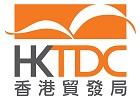

HONG KONG, July 8, 2024 - (ACN Newswire) - Standard Chartered and the Hong Kong Trade Development Council (HKTDC) today released the Standard Chartered GBA Business Confidence Index (GBAI) for the second quarter of 2024. The “current performance” index for business activity remained largely unchanged in Q2 at 54.1, compared to 54.3 in Q1, and near its strongest level since Q2 of 2021. The GBAI “expectations” index rose to 54.8 in Q2 from 54.0 in Q1, registering its first rise in five quarters. The figures remain comfortably above the 50 neutral mark, reflecting sustained expansionary momentum following a solid start to the year.
At the city level, Hong Kong’s “current performance” rose to 47.1 from 43.3, while “expectations” increased to 49.7 from 44.2, getting closer to the 50 neutral level. However, Guangzhou’s “current performance” index fell to 53.6 from 57.1 and “expectations” dropped to 56.6 from 60.6. Shenzhen posted the highest “current performance” at 57.3 and “expectations” at 57.1.
The performance among specific industry categories was diverse. “Retail and wholesale” (+3.9 points for “current performance” and +2.6 points for “expectations”), “financial services” (+15.0 points, +10.7 points) and “professional services” (+7.6 points, +12.3 points) all improved materially quarter-on-quarter. The May Labour Day holidays and an early start to the “618” online shopping festival probably boosted household demand, allowing “retail and wholesale” to beat “manufacturing and trading” (-0.9 points, +0.7 points), despite the latter’s stronger start to the year.
“Innovation and technology” (I&T) appeared to take a hit from tariff concerns, with the category’s “current performance” sub-index plunging to 43.9 from 57.8 previously, and “expectations” falling sharply to 38.1 from 54.6 in Q1. However, the level of confidence across I&T respondents varied in the three key cities of Shenzhen (42.0 for “current performance” and 33.7 for “expectations”), Guangzhou (50.0, 59.4) and Hong Kong (63.2, 76.0). This shows that not all tech companies are equally vulnerable to tariff hikes from countries in the west.
Kelvin Lau, Senior Economist, Greater China, Standard Chartered, said: “During the survey period, the US hiked tariffs on US$18bn worth of imports from China as part of its Section 301 review. The same period also marked the run-up to the European Commission’s more recent decision to impose anti-subsidy tariffs on Chinese electric vehicles (EVs). Some of our I&T respondents are probably part of such EV and lithium battery supply chains, and their reliance on external demand could be a lingering concern going into the US elections. That said, we take comfort from Hong Kong’s I&T outperformance, which likely reflected the city’s recent innovation and technology push via attracting strategic enterprises and related talent.”
New quality productive forces offer investment catalyst
The term “new quality productive forces” describes China’s push to modernise its economic growth model through technological innovation and transformation. While one of the main concerns over the push is whether there will be enough demand to absorb output from the increase in production capacity, only 11.7% of respondents saw “a very high risk” of overinvestment and potential overcapacity in some of the new industries, while a more substantial 36.7% described this as “only a low risk” while acknowledging that risks exist.
The risk of overcapacity or macro concerns such as an uncertain economic outlook did not deter GBA companies from upgrading equipment and planning to make other business investments in the next 12 months. Of the respondents, 26.1% said they planned to increase such investment materially or marginally, versus just 6.9% planning a decrease. A majority 67% opted for no change.
Irina Fan, HKTDC Director of Research, said: “Recent economic data from Mainland China indicates that the country’s growth remains at a solid pace so far this year. A greater role for Hong Kong is expected, particularly in the area of industrial transformation as the country focuses on pushing through the new quality productive forces. We also see room for financing and investment expectations to play catch-up.”
About the GBAI
The GBAI is the first forward-looking quarterly survey in the market that looks at the business sentiment and synergistic effects in cities and industries across the GBA. It is compiled based on a survey of more than 1,000 companies in the GBA covering the manufacturing and trading, retail and wholesale, financial services, professional services and innovation and technology sectors. The index enables investors and businesses to better understand the current business climate, gauge future performance prospects and formulate their market strategies for the GBA.
Related materials
- Standard Chartered GBA Business Confidence Index Report: https://av.sc.com/hk/content/docs/hk-gbr-en-q2-2024.pdf
- HKTDC Research: https://research.hktdc.com/en/article/MTczNTkwMDM0MQ
Photos download: https://bit.ly/4ePUtql
|
|
Kelvin Lau (left), Senior Economist, Greater China, Standard Chartered, and Irina Fan (right), Director of Research, HKTDC, announced the latest GBA Business Confidence Index (GBAI) today (8 July).
|
|
|
Kelvin Lau, Senior Economist, Greater China, Standard Chartered
|
|
|
Irina Fan, Director of Research, HKTDC
|
Media enquiries
|
Corporate Affairs Department Standard Chartered Bank (Hong Kong) Limited |
|
Lilian Goh |
|
Tel: (852) 3843 0341 |
|
Email: lilian.goh@sc.com |
|
Communications & Public Affairs Department HKTDC |
|
|
Katy Wong |
Clayton Lauw |
|
Tel: (852) 2584 4524 |
Tel: (852) 2584 4472 |
|
Email: katy.ky.wong@hktdc.org |
Email: clayton.y.lauw@hktdc.org |
About Standard Chartered
We are a leading international banking group, with a presence in 53 of the world’s most dynamic markets and serving clients in a further 64. Our purpose is to drive commerce and prosperity through our unique diversity, and our heritage and values are expressed in our brand promise, here for good.
Standard Chartered PLC is listed on the London and Hong Kong Stock Exchanges.
The history of Standard Chartered in Hong Kong dates back to 1859. It is currently one of the Hong Kong SAR’s three note-issuing banks. Standard Chartered incorporated its Hong Kong business on 1 July 2004, and now operates as a licensed bank in Hong Kong under the name of Standard Chartered Bank (Hong Kong) Limited, a wholly owned subsidiary of Standard Chartered PLC.
For more stories and expert opinions please visit Insights at sc.com. Follow Standard Chartered on X, LinkedIn, Instagram and Facebook.
To view press releases in Chinese, please visit http://mediaroom.hktdc.com/tc
About HKTDC
The Hong Kong Trade Development Council (HKTDC) is a statutory body established in 1966 to promote, assist and develop Hong Kong's trade. With 50 offices globally, including 13 in Mainland China, the HKTDC promotes Hong Kong as a two-way global investment and business hub. The HKTDC organises international exhibitions, conferences and business missions to create business opportunities for companies, particularly small and medium-sized enterprises (SMEs), in the mainland and international markets. The HKTDC also provides up-to-date market insights and product information via research reports and digital news channels. For more information, please visit: www.hktdc.com/aboutus. Follow us on ![]() Twitter @hktdc and
Twitter @hktdc and ![]() LinkedIn
LinkedIn
Source: HKTDCStandard Chartered
Copyright 2024 ACN Newswire . All rights reserved.








